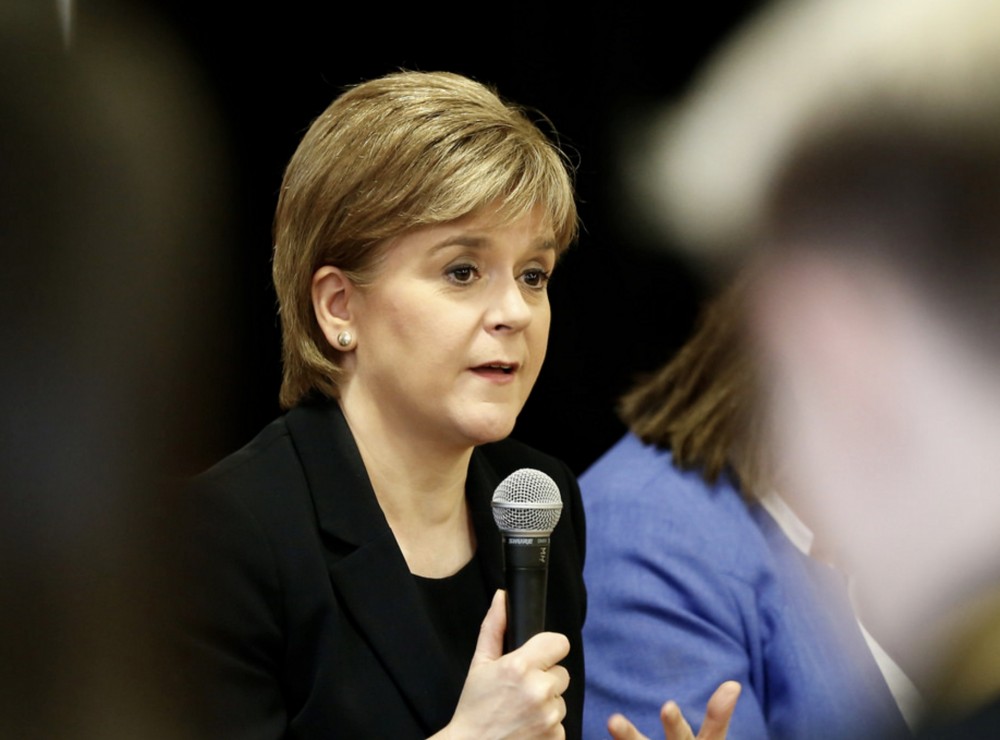Scotland seeks “even stronger partnerships with northern neighbours”

Ólafur Ragnar Grímsson, then President of Iceland and architect of the Arctic Circle, had invited Sturgeon to address the annual Arctic Circle gathering when they met during the climate negotiations at the Paris COP in December 2015.
The Scottish First Minister´s speech concentrated on the common challenges of climate change and Scotland’s leadership in mitigation and adaption efforts at home and abroad. In a distinctive Scottish accent, she described Scotland’s ambitious carbon emissions targets (the first of which it had met 6 years ahead of schedule), its investment in renewable energy projects and the 1 million GBP Scottish Climate Justice Fund – a World first that has already supported eleven projects in Africa. Sturgeon readily acknowledged that in the face of climate change, Scotland’s actions represented only a small step and but argued passionately that international cooperation could turn small steps into a long march forward. “Paris is a milestone but not a destination” she told the 2000 attendees from governments, business, NGOs and academia.
Sturgeon’s examples of Scottish-Arctic connections were predominantly Nordic and Canadian (Scotland’s links to Alaska and Russia being less well established). The most recent of these was the cultural exchange between the fans of Motherwell Football Club and Garðarbær club Stjarnan during a Europe League tie in 2014 at which the Motherwell fans taught the Stjarnan supporters the now famous “Volcano Clap”. Sturgeon also raised a laugh by hinting that Iceland may have had a few million extra supporters dressed in blue for its 2-1 defeat of England at the Euro 2016 tie this summer. She also made light-hearted mention of the book, How Scotland Invented The Modern World, by Canadian author Arthur Herman.
Turning to BREXIT, Sturgeon told the packed conference hall that she would do all she could to keep Scotland’s doors to Europe open. She reminded the audience that 62% of the Scottish electorate had voted to remain in the EU. Stressing the need for common approaches, she said:
“We welcome the EU’s practical benefits – free trade, free movement; social and environmental protections. And, for all its imperfections, we also admire the principle behind it – we like the idea of independent countries working together for a common good. And we believe that on some issues – and climate change is a good example – 28 independent nations working together can have a bigger impact than one on its own.”
Her message was simple: Scotland is open for business – especially with its northern neighbours.
Sturgeon’s multilateralism stands in stark relief against the increasingly isolationist policies of the UK government. Last week saw the UK Home Secretary propose that British firms report publicly on all the non-UK nationals in their workforces so that they can be ‘named and shamed’ to ‘encourage’ them to recruit more British workers. Meanwhile, some of the foremost experts in European affairs at the prestigious London School of Economics were advised that they would no longer be asked by the UK Government for analysis on the Brexit process simply because they are not British citizens.
Following her keynote speech, Sturgeon attended a reception at the British Embassy where she signed a memorandum of understanding between VisitScotland and the Icelandic Tourist Board. The Icelandic tourist industry is burgeoning – some would say a little too burgeoning – but there is much experience that can be exchanged between the two countries for mutual benefit.
Rachael Lorna Johnstone is Professor of Law at the University of Akureyri and at Ilisimatusarfik (University of Greenland). She specialises in Polar Law (the governance of the Arctic and the Antarctic under international and domestic law) and is author of a 2012 paper: An Arctic Strategy for Scotland.